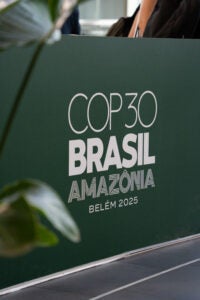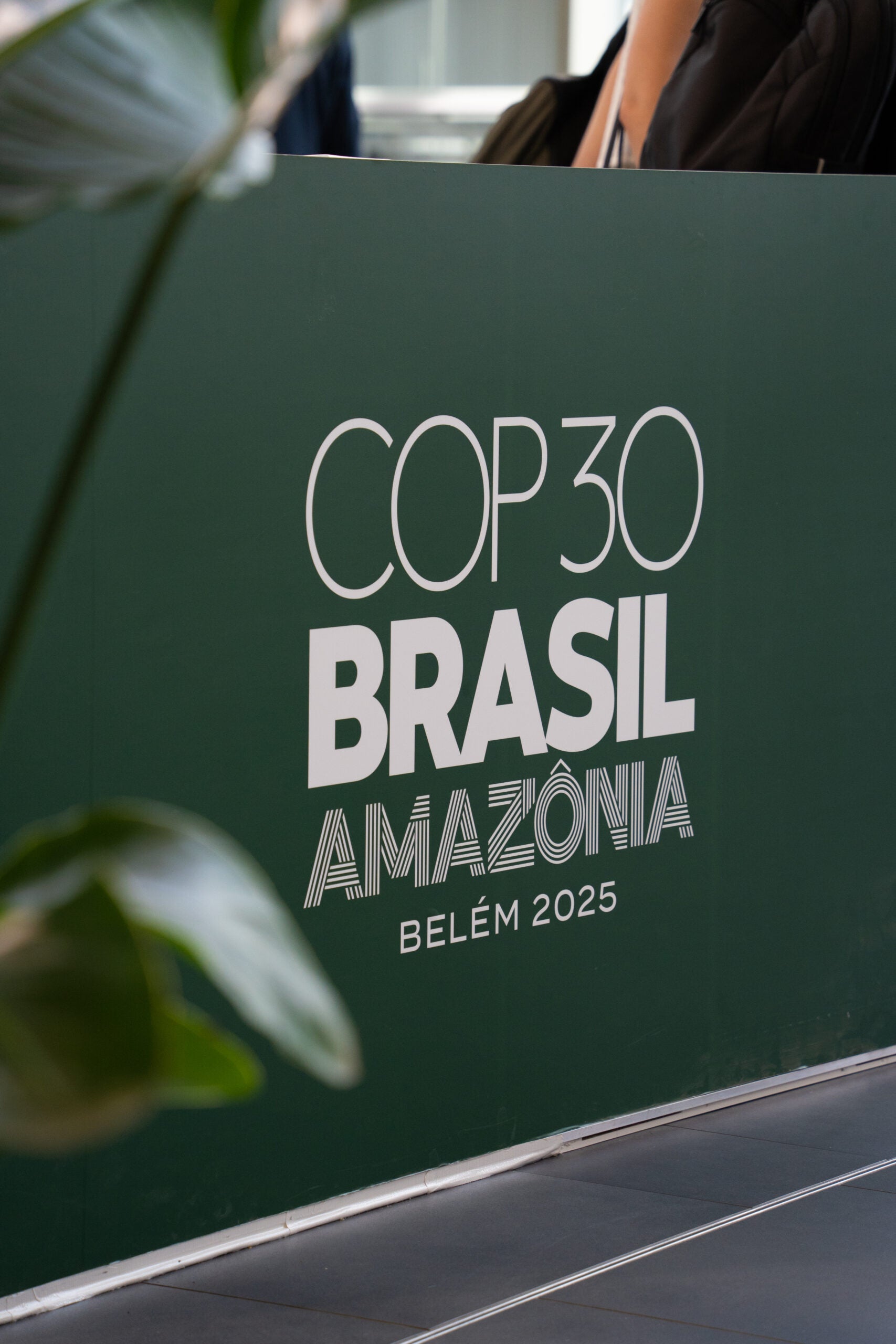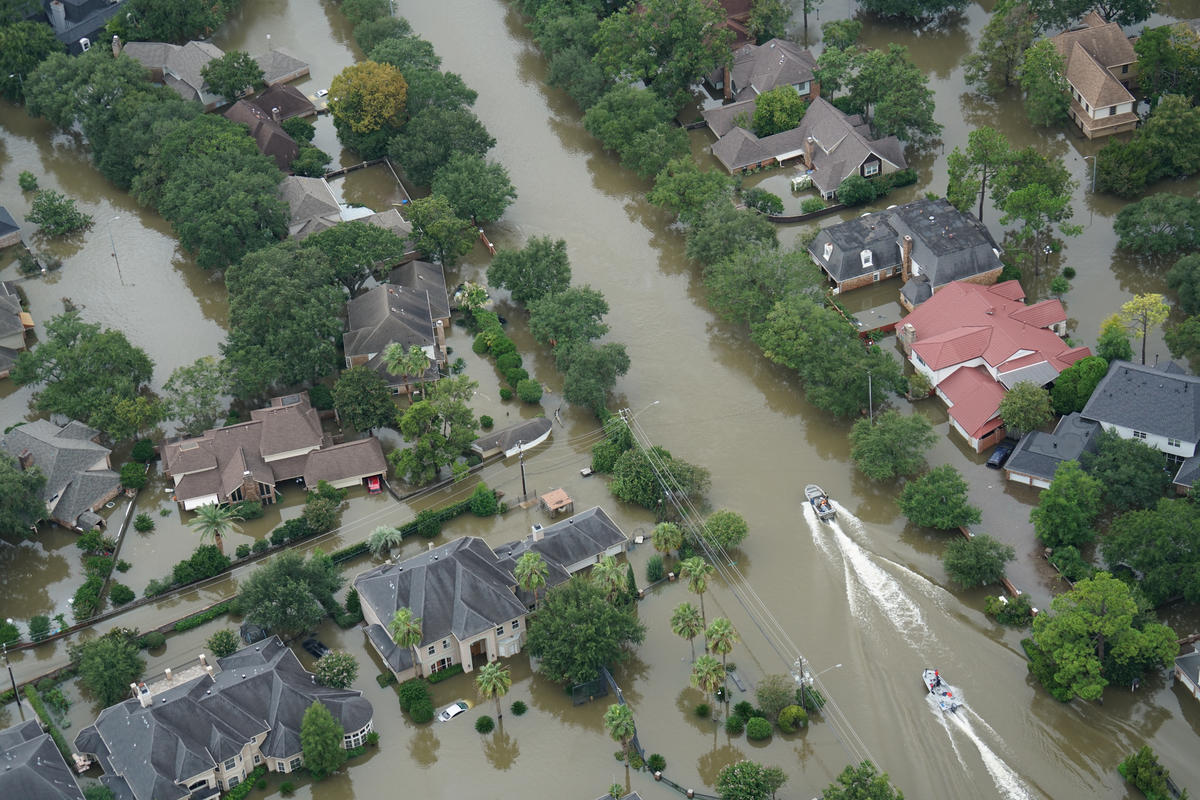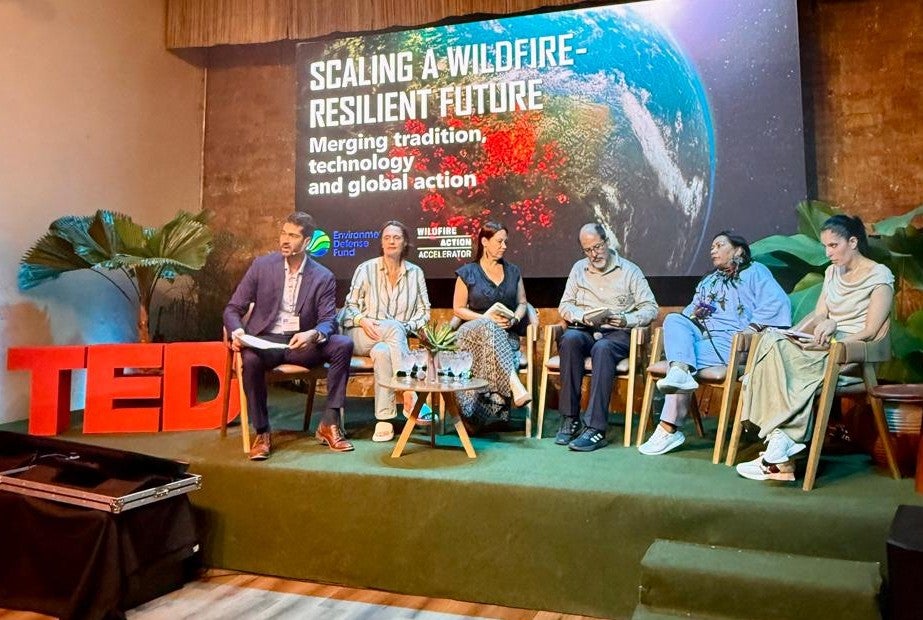
Two voices, one opportunity: Choosing climate action over crisis at COP30

The upcoming United Nations climate negotiations, COP30 in Belém, Brazil, is a milestone moment to reflect on progress made and the path ahead. It’s undeniable that the journey to a climate-resilient world has been turbulent, especially as we wrestle with the reality of political pushback, disengagement, and finance shortfalls faced in several countries.
This year, in particular, has delivered a barrage of mixed messages that make the path ahead feel fractured.
In one ear, we hear loud, often politically charged distraction. Climate deniers actively push back on climate policies under the guise of economic prosperity.
But in the other ear, we hear opportunity. While that negative voice appears louder, the other, the voice of opportunity, is more robust.
In spite of the headwinds, that voice of opportunity is backed up by reality. And by clear scientific and economic evidence: The economic case for climate action has never been stronger. For example, there is more investment in clean energy than ever before. Renewable energy is forecast to meet over 90 percent of the global electricity demand growth through 2030.
What’s more is that this voice is not singular, but rather a chorus of voices belonging to a whole-of-society effort — not just governments, but communities and companies, Indigenous Peoples and investors — coming together to seize the opportunity. Public opinion remains strongly in support, with 80 percent of people globally and 66 percent of people in the United States welcoming stronger climate action. In the private sector, a review of 75 top companies showed that 53 percent are holding firm to their climate commitments and 32 percent are expanding their efforts. For the first time, over 1,000 Indigenous Peoples are accredited to join COP30.
The question for all of us is: Which voice do we choose to hear? Do we listen to the unsubstantiated defender of the status quo, or the voices from across society acting on the evidence that climate action is the biggest opportunity of our lifetime?
At EDF, our choice is clear: we need to amplify the voices of those who see the opportunity of climate action – businesses, communities, and civil society alike – to galvanize governments negotiating at COP30 to boost their ambition and champion true solutions.
Here are the major issues we’ll be watching at the COP:
Finding a path toward more ambitious NDCs
Updated national climate plans, or Nationally Determined Contributions (NDCs), are due this year, with COP30 serving as a final deadline for countries to submit their plans for the next five years of climate action. So far, only 64 countries have submitted their plans to the UN, and the combined targets cut carbon by only 10 percent compared with 2019 levels. That’s insufficient, delivering only a sixth of the emissions cuts we need to see.
We need to use COP30 as a moment to regroup and realign countries’ ambitions with the opportunity at hand. We have to use this anniversary moment to reflect
on the lessons from the last ten years of progress, learn from the implementation executed thus far, and translate those lessons into another wave of renewed commitments that meet the speed and scale that science demands.
Scaling up climate finance to enable greater ambition
Raising ambition demands the financial means to get there. More ambitious NDCs need to be backed by a robust financial system that delivers the resources communities need. At COP30 countries will continue to discuss the Baku to Belem Roadmap to boost the climate finance goal to $1.3 Trillion. The Roadmap must show the world the potential pathways to fill the climate finance gap by including all sources of finance – from blended vehicles to carbon markets to national development banks.
We also need to incorporate solutions that make finance more accessible and impactful for communities who need it. That includes targeting underlying barriers that inhibit climate action such as the high cost of capital, weak regulatory markets and incentives, and unsustainable debt.
It’s not enough to pledge funds; we must ensure capital is flowing to projects that deliver measurable mitigation and adaptation benefits, especially in developing nations. EDF is working to align finance with policy and elevating finance solutions across different sectors. Finance is not an end itself, but a means toward taking ambitious climate action.
Building a market for adaptation to boost climate resilience
For over a decade, we’ve focused on stopping the core drivers of climate change: reducing our emissions, or climate mitigation. Now, with impacts arriving faster than anticipated, the focus must include adaptation. This means changing our mindset to address climate risk head-on, for our homes, our communities, for industry and business, and for our global economy at large.
The Brazilian COP presidency is working to ensure COP30 delivers as a “turning point” on adaptation. They urge countries to act on the urgency and deliver tangible outcomes on adaptation, including a new adaptation finance target, a system to track progress on the Global Goal on Adaptation, and political will to drive action on adaptation.
But negotiations can only move the needle so far; we need to build a market for adaptation solutions. EDF is focused on fostering real economic incentives and enabling policies that make adaptation investable, scalable, and sustainable for the long term. Just as clean energy scaled through tax credits, procurement standards, and predictable demand. Integrating risk into economic and social development plans makes our homes, livelihoods and investments more secure.
Protecting our forests
As COP30 convenes at the gateway to the Brazilian Amazon, the world’s tropical forests will rightly be a major focus. Protecting these vital ecosystems is essential for safeguarding the global climate and biodiversity, while also honoring their profound cultural significance to the Indigenous Peoples and local communities (IPLCs) who depend on them.
We need a clear-eyed approach that examines the science behind the main drivers of forest loss. Critically, we must recognize that wildfires are now a dominant factor in deforestation. To put it simply, we need a new way to manage wildfires, moving from reactive fire suppression to proactive management and enhancing data-driven decision-making that is both flexible at the local level and coordinated worldwide. It requires governments, the private sector, and Indigenous Peoples and Local Communities to work together.
The good news is that solutions are available, and finance solutions to support them are expected to launch at COP30. Reflecting this, Brazil is actively pushing for the creation of a new fund to combat deforestation: the Tropical Forests Forever Facility. A significant step toward equity and effectiveness is the plan to direct 20 percent of its payments to Indigenous Peoples and Local Communities, formally recognizing their critical role in forest stewardship.
Given the multifaceted challenge we face, COP30 must deliver a multifaceted approach—not just in the formal negotiation rooms, but in the ways messages and solutions are shared globally. That doesn’t just mean bringing everyone to the table in Belém, it means making the table accessible to the world via virtual spaces and engagement.
Belém is the crossroad where the world can shift from climate promise to full implementation, securing the finance and partnerships needed to protect the planet and empower every stakeholder to bring forward climate actions that build economies, improve lives and safeguard our future. Whether you are joining in Brazil or from your home office, I hope you will choose to add your voice to the choir of people acting on the opportunities and solutions in front of us.












